The Adrenal Glands
The adrenal glands are small organs located just above the kidneys. They produce hormones that assist
the functions of your blood pressure, lymphatic system, metabolism, and the body’s stress response.
Composed of two parts called the cortex and medulla (kind of like your brain) each part produces
different hormones. The hormones the adrenal glands produce are released directly into the
bloodstream.
The Adrenal Glands Connection With Liver Function
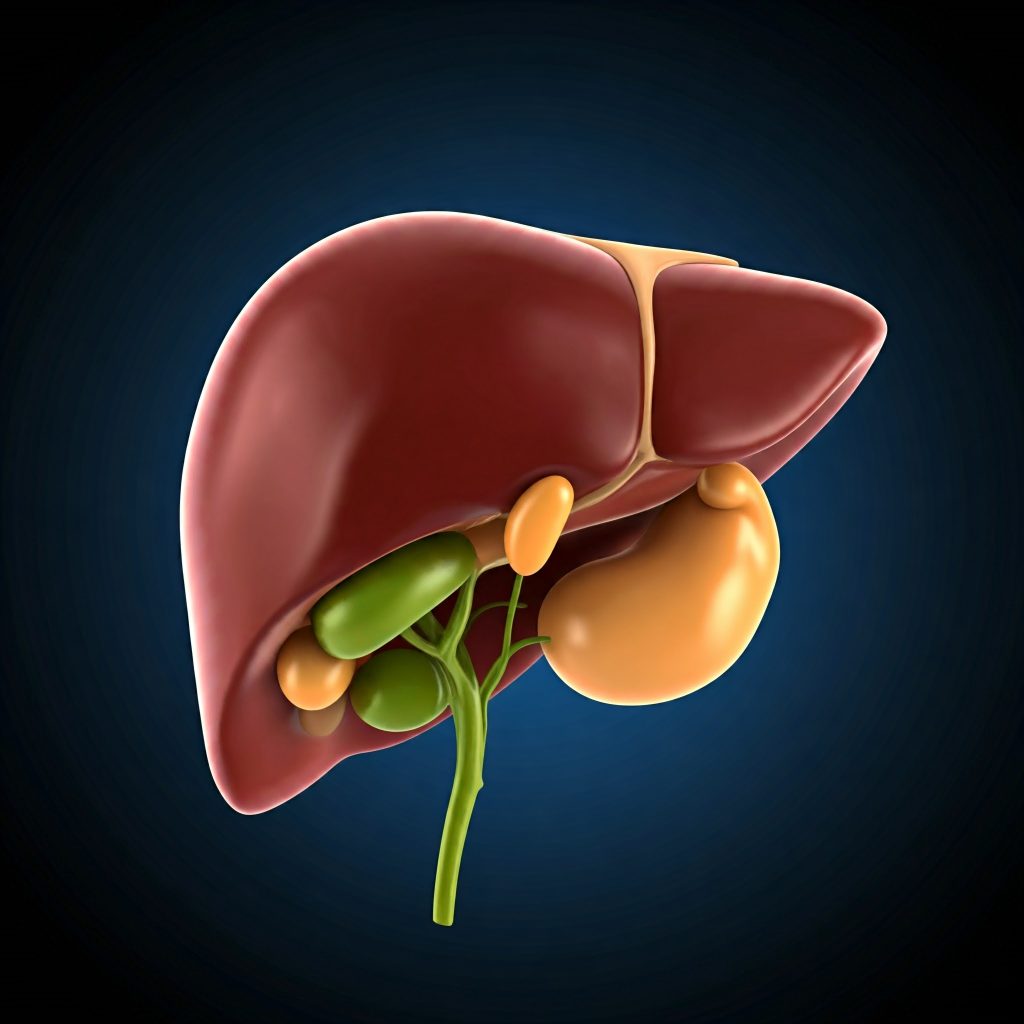
The adrenal glands and the liver are intimately connected through cortisol, the main anti-stress
hormone. Cortisol dysregulation can lead to liver fatigue and gallbladder dysfunction. Similarly, severe
liver disease is associated with adrenal insufficiency.
The Liver Connection With Gallbladder Function
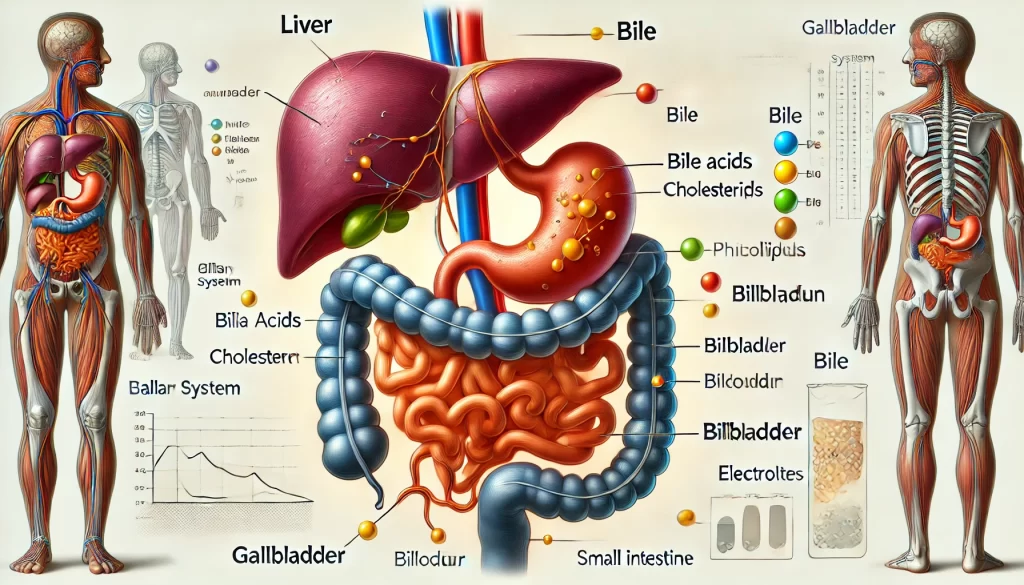
The gallbladder stores and concentrates bile transported from the intestine through the biliary system
from the liver. The bile is then released into the first section of the small intestine (the duodenum),
where it helps your body to break down and absorb fats from food.
Bile contains bile acids, phospholipids, and cholesterol. It also contains aqueous components such as
electrolytes, bilirubin, amino acids, enzymes, and peptides like glutathione mixed in specific
ratios. The biliary system Is also an excretory route for toxic metabolites and other molecules that would
otherwise become harmful if accumulated in the body (bilirubin, cholesterol).
The Adrenal Glands Connection With Kidney Function
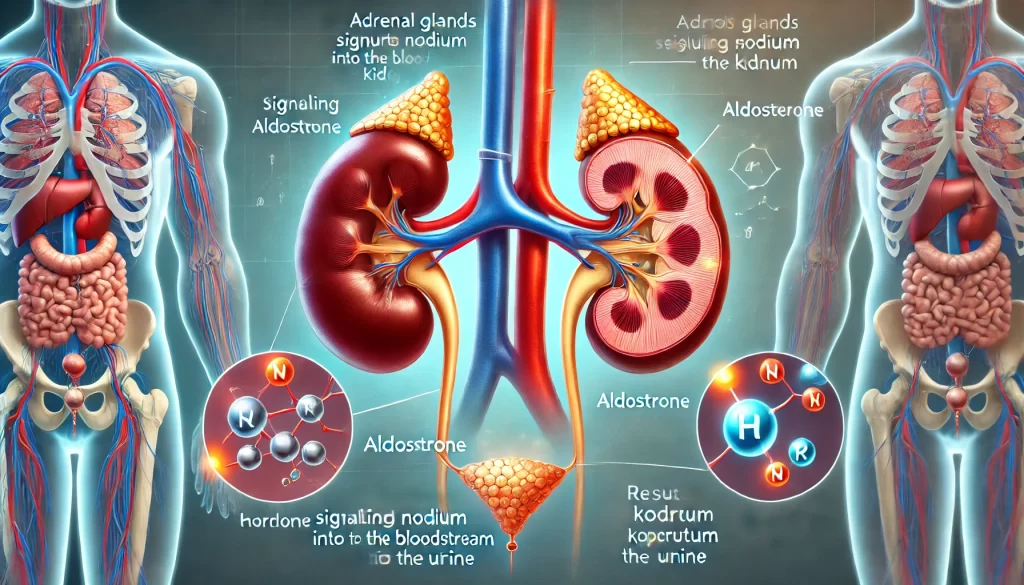
The adrenal glands’ connection to the urinary system is the release of aldosterone, a hormone that
sends signals to the kidneys to absorb more sodium into the bloodstream, balancing the acidity of the
blood and the release of potassium into the urine.
Potassium is a mineral that the body needs to work properly. It is a type of electrolyte. It helps your
nerves to function and muscles to contract. It helps the heartbeat stay regular. It also helps move
nutrients into the cells and waste products out of cells.
Adrenal Fatigue
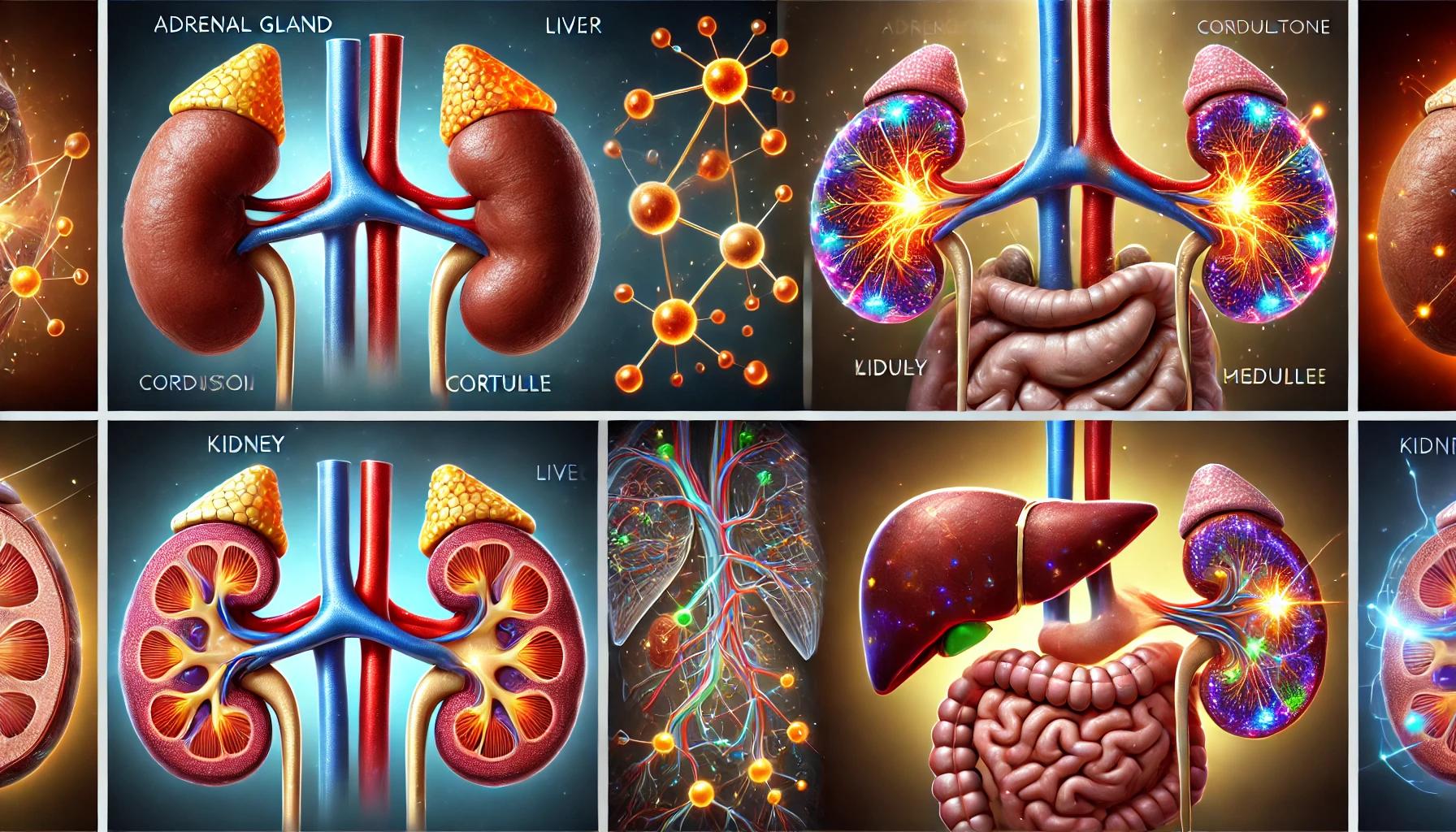
Adrenal fatigue is a term used to describe a collection of non-specific symptoms, such as fatigue,
weakness, and a general sense of unwellness, attributed to chronic stress and the inability of the adrenal
glands to function optimally. Chronic stress overwhelms the adrenal glands, leading to a disruption in
the production of hormones like cortisol, which plays a role in regulating the body’s stress response.
Chronic stress can indeed lead to a variety of physical and psychological symptoms, including fatigue,
sleep disturbances, and mood changes. These symptoms are more accurately described as stress related.
Addressing chronic stress and its effects on well-being is essential, but it’s typically approached through
stress management techniques, lifestyle modifications. If you are experiencing persistent fatigue or
other symptoms you should consult with a healthcare provider.
Here are some natural approaches:
Stress Management: Chronic stress contributes to adrenal fatigue. Practicing stress-reduction
techniques like meditation, deep breathing, yoga, or mindfulness can help manage stress and support
adrenal health.
Balanced Diet: Eating a nutrient-rich diet with a focus on whole foods, including plenty of fruits,
starchless vegetables, nut and seeds, can provide essential nutrients to support adrenal function. Avoid excessive caffeine, unnatural sugar, and processed foods.
Regular Meals: Eating regular, balanced meals and snacks can help stabilize blood sugar levels, which in
turn ease adrenal stress. Avoid long periods of fasting or extreme diets.
Adequate Sleep: Prioritize getting enough quality sleep, typically 7-9 hours per night. Create a
consistent sleep schedule and establish a calming bedtime routine.
Adaptogenic Herbs: Some herbs, like ashwagandha, rhodiola, wild yam root and licorice root, are considered adaptogens and help the body adapt to stress.
Exercise: Engage in regular, moderate exercise. Avoid excessive, intense workouts, as they can
exacerbate adrenal fatigue. Gentle activities like walking, swimming, or yoga can be beneficial.
Hydration: Consuming fruits and vegetables to stay well-hydrated. Dehydration can stress the body and exacerbate adrenal fatigue symptoms.
Limit Caffeine: Eliminate or reduce caffeine intake, as it can stress the adrenal glands and disrupt your
sleep patterns.
Mind-Body Techniques: Massage therapy helps reduce stress and promote relaxation.
Proverbs 17:22 22 A merry heart doeth good like a medicine: but a broken spirit drieth the bones.
Remember that adrenal fatigue is a controversial diagnosis, and its existence and treatment are not
universally accepted in the medical community. It’s essential to work closely with a healthcare
provider who can provide personalized guidance and rule out any other underlying medical conditions
that may be causing your symptoms.
Treatment
Treating adrenal fatigue may take only a week or a few weeks depending on the level of fatigue and
stress. When your stress levels come down this is usually a good sign that the adrenal glands are beginning operating properly.
Are you looking for more resource material for guidance in your journey to optimize your well-being? then you should read:
Health Benefits of Berries: Nature’s Antioxidant Powerhouses for Boosting Wellness
Definite Cure of Chronic Constipation Also Overcoming Constipation Naturally
By Arnold Ehret
Minerals: What Your Body Really Needs and Why
By George L. Redmon Phd
For herbal supplementation:
Adrenal Fatigue Liver and Kidney Cleanse Tea
Adrenal Fatigue Liver and Kidney Cleanse Capsules
Berry-oxidants Tea – All1Fitness
Berry-oxidants Capsules – All1Fitness
NOTE: We highly recommend that before using any herbal medications you should consult your health care provider or medical doctor for professional advice.

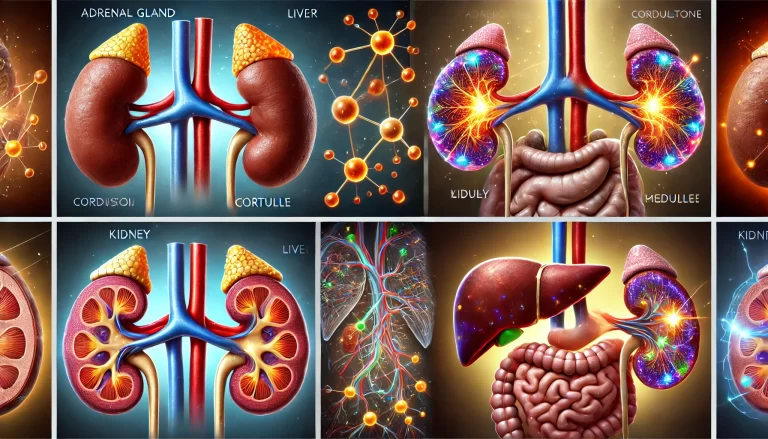

2 comments
Buy iptv south africa
Fantastic beat ! I would like to apprentice while you amend your web site, how could i subscribe for a blog site? The account helped me a acceptable deal. I had been a little bit acquainted of this your broadcast offered bright clear concept
All1Fitness
All Praises to the Creator